Pauline Epistles:

Paul is an incredibly prolific figure within the New Testament. He is attributed to writing 13 of the 27 books in the New Testament. Originally Paul was credited with writing 14 of the books in the New Testament, however, now most scholars are in agreement that Paul did not write the book of Hebrews. Not even Paul claims to be the author of Hebrews.
The books that claim to be written by Paul are Romans, 1 Corinthians, 2 Corinthians, Galatians, Philippians, Philemon, 1 Thessalonians, 2 Thessalonians, Colossians, Ephesians, 1 Timothy, 2 Timothy, and Titus.
Paul’s writings are occasional, which means they were written for certain occasions, not that he wrote a letter occasionally. In most cases Paul wrote letters to the churches he founded to address issues that had been conveyed to him after he had left.
Pseud epigraphy and forgeries:
Pseudonym: meaning “false name” is derived from the Greek word pseudōnymos (pseud = “false”, onyma = “name”).
There is no doubt writing pseudonymously in Paul’s time. We have many examples that show this. For example:
... And the list could go on and on.
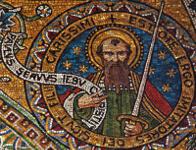
My personal favorite is from Paul, 2 Thes 2:2 (NKJV) “not to be soon shaken in mind or troubled, either by spirit or by word or by letter, as if from us, as though the day of Christ had come." The irony is that 2 Thessalonians is one of the Pauline epistles whose authorship is questioned. One way or the other this shows that letters were being written Paul’s name. If this epistle was actually written by Paul then he is stating that there are false letters in his name that he is aware of. If this epistle was not written by Paul, then it was a false letter anyway. Either way the truth comes out; there are false writings in Paul’s name.
Always keep in mind when somebody writes a forgery the idea is that it is supposed to sound like the person they are forging, otherwise it isn’t a very good forgery. There are several techniques that are used to critically examine documents to see if they are forgeries or not.
When we think of writing pseudonymously, most people think that there are nefarious motives behind it. However in many cases this is not true.
Scholars generally divide Pauline corpus into three different areas:
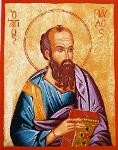
Uncontested Pauline Epistles:
To set the groundwork, we are going to examine the teachings that Paul presents in his uncontested epistles. By knowing what Paul believed and taught in his undisputed epistles, this will give us a gauge to measure the other epistles that claim to be written by Paul. The books that claim to be written by Paul and scholars, for the most part, are in complete agreement that Paul wrote, are Romans, 1 Corinthians, 2 Corinthians, Galatians, Philippians, Philemon, and 1 Thessalonians.
Deut 21:22“If a man has committed a sin deserving of death, and he is put to death, and you hang him on a tree,
23his body shall not remain overnight on the tree, but you shall surely bury him that day, so that you do not defile the land which the Lord your God is giving you as an inheritance; for he who is hanged is accursed of God. (NKJV)
and
Gal 3:13
Gal 3:13Christ has redeemed us from the curse of the law, having become a curse for us (for it is written, “Cursed is everyone who hangs on a tree”), (NKJV)
). Paul believed that faith in Christ is what justifies an individual, not keeping the law (
Gal 2:16, 21
Gal 2:16knowing that a man is not justified by the works of the law but by faith in Jesus Christ, even we have believed in Christ Jesus, that we might be justified by faith in Christ and not by the works of the law; for by the works of the law no flesh shall be justified....
Gal 2:21I do not set aside the grace of God; for if righteousness comes through the law, then Christ died in vain.” (NKJV)
). The law has no power to save but rather the knowledge of sin (
Rom 3:20
Gal 2:21I do not set aside the grace of God; for if righteousness comes through the law, then Christ died in vain.” (NKJV)
Rom 3:20Therefore by the deeds of the law no flesh will be justified in His sight, for by the law is the knowledge of sin. (NKJV)
).
1 Thes 4:13But I do not want you to be ignorant, brethren, concerning those who have fallen asleep, lest you sorrow as others who have no hope. (NKJV)
,
1 Thes 5:10
1 Thes 5:10who died for us, that whether we wake or sleep, we should live together with Him. (NKJV)
)
Philip 3:5circumcised the eighth day, of the stock of Israel, of the tribe of Benjamin, a Hebrew of the Hebrews; concerning the law, a Pharisee;
6concerning zeal, persecuting the church; concerning the righteousness which is in the law, blameless. (NKJV)
). He believed that a gentile didn’t have to become a Jew to be a Christian because it wasn’t the law that justified someone(
Gal 2:16
Gal 2:16knowing that a man is not justified by the works of the law but by faith in Jesus Christ, even we have believed in Christ Jesus, that we might be justified by faith in Christ and not by the works of the law; for by the works of the law no flesh shall be justified. (NKJV)
). For a male becoming a Jew meant to be circumcised but Paul was adamant against this for Gentiles (
Gal 2:14
Gal 2:14But when I saw that they were not straightforward about the truth of the gospel, I said to Peter before them all, “If you, being a Jew, live in the manner of Gentiles and not as the Jews, why do you compel Gentiles to live as Jews? (NKJV)
,
Gal 5:2,3
Gal 5:2Indeed I, Paul, say to you that if you become circumcised, Christ will profit you nothing.
3And I testify again to every man who becomes circumcised that he is a debtor to keep the whole law. (NKJV)
). On the other hand, Paul also believed that if you were a Jew and accepted Christ as your savior, that you keep the law to maintain your Jewish identity.
Gal 3:28There is neither Jew nor Greek, there is neither slave nor free, there is neither male nor female; for you are all one in Christ Jesus. (NKJV)
). There was a woman named Junia who is actually referred to as an apostle (
Rom 16:7
Rom 16:7Greet Andronicus and Junia, my countrymen and my fellow prisoners, who are of note among the apostles, who also were in Christ before me. (NKJV)
). It should be noted that newer manuscripts changed Junia to Junias, a male name, as the church became more male dominated because they didn’t feel it was appropriate that there was a female apostles.
1 Cor 15:50Now this I say, brethren, that flesh and blood cannot inherit the kingdom of God; nor does corruption inherit incorruption.
51Behold, I tell you a mystery: We shall not all sleep, but we shall all be changed—
52in a moment, in the twinkling of an eye, at the last trumpet. For the trumpet will sound, and the dead will be raised incorruptible, and we shall be changed.
53For this corruptible must put on incorruption, and this mortal must put on immortality. (NKJV)
).
Deutero Pauline Epistles:
Let’s first examine the Deautero Pauline epistles (2 Thessalonians, Colossians, and Ephesians) and see how the known teachings of Paul aligned with what is said within the Deautero Pauline epistles.
2 Thessalonians: This book deviates from the known Pauline corpus in that the writers view of eschatology has changed. In the known Pauline epistles, Paul was adamant that the end of the age was at hand and was coming very quickly. In 2 Thessalonians this has been changed to something that isn’t going to happen quickly and several things must happen before the end of the age (
2 Thes 2:2–13
2 Thes 2:2not to be soon shaken in mind or troubled, either by spirit or by word or by letter, as if from us, as though the day of Christ had come.
3Let no one deceive you by any means; for that Day will not come unless the falling away comes first, and the man of sin is revealed, the son of perdition,
4who opposes and exalts himself above all that is called God or that is worshiped, so that he sits as God in the temple of God, showing himself that he is God.
5Do you not remember that when I was still with you I told you these things? 6And now you know what is restraining, that he may be revealed in his own time. 7For the mystery of lawlessness is already at work; only He who now restrains will do so until He is taken out of the way. 8And then the lawless one will be revealed, whom the Lord will consume with the breath of His mouth and destroy with the brightness of His coming. 9The coming of the lawless one is according to the working of Satan, with all power, signs, and lying wonders, 10and with all unrighteous deception among those who perish, because they did not receive the love of the truth, that they might be saved. 11And for this reason God will send them strong delusion, that they should believe the lie, 12that they all may be condemned who did not believe the truth but had pleasure in unrighteousness.
13But we are bound to give thanks to God always for you, brethren beloved by the Lord, because God from the beginning chose you for salvation through sanctification by the Spirit and belief in the truth, (NKJV)
). What was happening in the church Thessalonica was that people were quitting their jobs and sponging off of the congregation. This was creating huge problems! I believe that when Paul saw what was happening in the church communities and the end of the age was not coming as soon as he thought it was, he changed his teaching on this. I don’t have a problem with this and I believe that this is an authentic Pauline epistle. 5Do you not remember that when I was still with you I told you these things? 6And now you know what is restraining, that he may be revealed in his own time. 7For the mystery of lawlessness is already at work; only He who now restrains will do so until He is taken out of the way. 8And then the lawless one will be revealed, whom the Lord will consume with the breath of His mouth and destroy with the brightness of His coming. 9The coming of the lawless one is according to the working of Satan, with all power, signs, and lying wonders, 10and with all unrighteous deception among those who perish, because they did not receive the love of the truth, that they might be saved. 11And for this reason God will send them strong delusion, that they should believe the lie, 12that they all may be condemned who did not believe the truth but had pleasure in unrighteousness.
13But we are bound to give thanks to God always for you, brethren beloved by the Lord, because God from the beginning chose you for salvation through sanctification by the Spirit and belief in the truth, (NKJV)
Colossians: The biggest concern that scholars see within Colossians is that Paul appears to change his point to you on a glorified existence (
Col 2:12
Col 2:12buried with Him in baptism, in which you also were raised with Him through faith in the working of God, who raised Him from the dead. (NKJV)
;
Col 3:1
Col 3:1If then you were raised with Christ, seek those things which are above, where Christ is, sitting at the right hand of God. (NKJV)
). In 1 Corinthians Paul argues against Christians already having a glorified existence. This is a big doctrinal change and because of this I don’t believe this would be an authentic Pauline document. Ephesians: Ephesians is a great book with many fantastic teachings and it is the hardest of the Deautero epistles to accept as an authentic Pauline epistle for many reasons.
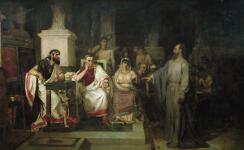
This relatively small book contains 116 words that Paul does not use in his known books. This would be rather unusual for any writer.
When we read Ephesians in English it sounds very Pauline, however when we examine Ephesians in the original language it was written in, Greek, scholars see that this is very different. Paul’s writing style is short and choppy, while the author of Ephesians wrote in long, convoluted sentences.
We know that Paul was a Jew and was a devout Pharisee in
Philip 3:6
Philippians 3:6concerning zeal, persecuting the church; concerning the righteousness which is in the law, blameless. (NKJV)
Paul declared “concerning zeal, persecuting the church; concerning the righteousness which is in the law, [I was] blameless.” (NKJV) Whereas the author of the Ephesians said of everyone, including himself “among whom also we all once conducted ourselves in the lusts of our flesh, fulfilling the desires of the flesh and of the mind, and were by nature children of wrath, just as the others.” (NKJV) (
Eph 2:3
Eph 2:3among whom also we all once conducted ourselves in the lusts of our flesh, fulfilling the desires of the flesh and of the mind, and were by nature children of wrath, just as the others. (NKJV)
)
The writer of Ephesians says we are raised up already (
Eph 2:5,6
5even when we were dead in trespasses, made us alive together with Christ (by grace you have been saved),
6and raised us up together, and made us sit together in the heavenly places in Christ Jesus, (NKJV)
) where Paul in 1 Corinthians 15 argues against this believe by saying that Christ lived, died and was resurrected and that will happen to us. We have not died and therefore cannot have been resurrected, therefore the resurrection hasn’t happened.
The Pastoral Epistles:
1 Timothy, 2 Timothy, and Titus are referred to as the “pastoral epistles” Unlike the other letters from Paul, these are not written to a “congregation” but rather to the pastors telling them to get their house in order. Timothy was the leader in Ephesus (
1 Tim 1:3
1 Tim 1:3As I urged you when I went into Macedonia—remain in Ephesus that you may charge some that they teach no other doctrine, (NKJV)
) and Titus was the leader in Crete (
Tit 1:5
Tit 1:5For this reason I left you in Crete, that you should set in order the things that are lacking, and appoint elders in every city as I commanded you— (NKJV)
).
There are certain things we can say about these letters, regardless of who the author is:
Scholars are almost in complete agreement that Paul didn’t write these letters. Let’s take a look at the issues with the pastoral epistles.
Language:
Paul was no slouch when it came to Greek, however the writer of the pastoral epistles used 848 different words, of which 306 are not found in all the other writings of Paul, including the Deutero-epistles (remember that Ephesians used 116 words that Paul never used in the accepted Pauline epistles). These are three very small letters, 13 chapters total, so this would be a very inordinate number of new words for any writer.
When translating documents, words that were added for clarification, but don’t appear in the original document, are shown in italics. When I add verses to Biblical Forensics, I have to manually add the italics. I haven’t done any analysis on this, but it seems that I have had to add far fewer italics to the pastoral epistles than all the other Pauline epistles. This may be a future study.
Some words also changed their meaning, like many words have done over time. The word “faith” was used in the known Pauline epistles as “a trusting acceptance of Christ’s death for your sins”, but is used in a more all-encompassing manner in the pastoral epistles “the body of teaching that makes up true religion” (
1 Tim 6:21
1 Tim 6:21by professing it some have strayed concerning the faith. Grace be with you. Amen. (NKJV)
,
Tit 1:13
Tit 1:13This testimony is true. Therefore rebuke them sharply, that they may be sound in the faith, (NKJV)
).
Writing Style:
In the known Pauline epistles, Paul addresses false teachings by point them out and correcting them. In the pastoral epistles the writer never indicates what the teaching he is addressing is, though at times he eludes to it.
Signs of the times (probably not what you’re expecting):
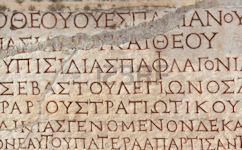
Many times we use events within ancient writings to determine when they were written. For example, if we found a document that said “and while Jesus was listening to mp3’s on his cell phone, he remembered that he needed to call his mother Mary…” I don’t think anybody would have a problem determining that the Jesus and Mary referenced here are not the Jesus and Mary from the bible. This is an obvious example because the technology that is referenced here wasn’t available in Yeshua’s time. The writings we are talking about cover less than 100 years so the changes are very subtle but they do exist. Let’s look as some of these subtle differences in the pastoral epistles that most people wouldn’t notice.
Several things happened in the early 2nd century that we see reflected in the pastoral epistles. Believers came to believe that the “end of time” wasn’t as eminent as they were lead to believe. They were in it for the long haul, regardless of when the end would be. The body of believers was growing. The growth that was occurring required larger gathering places for worship and studies, simply put, they outgrew meeting in people’s houses. With this came changes in the church structure. A new form of religion called Gnosticism started to crop up. We can use what is being said in the pastoral epistles to place them in a time period that was outside of Paul’s lifetime.
Like when Israel wanted a king rather than an unseen God as leader (
1 Sam 8:4,5
1 Sam 8:4Then all the elders of Israel gathered together and came to Samuel at Ramah,
5and said to him, “Look, you are old, and your sons do not walk in your ways. Now make us a king to judge us like all the nations.” (NKJV)
), the church moved from being charismatic to being human structured with bishops, and deacons (
1 Tim 3:1
1 Tim 3:1This is a faithful saying: If a man desires the position of a bishop, he desires a good work. (NKJV)
,
1 Tim 3:10
1 Tim 3:10But let these also first be tested; then let them serve as deacons, being found blameless. (NKJV)
). According to the pastoral epistles all of these positions were to be filled by men, women were pushed into obscurity (
1 Tim 3:2
1 Tim 3:2A bishop then must be blameless, the husband of one wife, temperate, sober-minded, of good behavior, hospitable, able to teach; (NKJV)
,
1 Tim 3:12
1 Tim 3:12Let deacons be the husbands of one wife, ruling their children and their own houses well. (NKJV)
,
1 Tim 2:12
1 Tim 2:12And I [Paul] do not permit a woman to teach or to have authority over a man, but to be in silence. (NKJV)
).
In the time period of Yeshua and the known Pauline epistles, women played a prominent role with one exception I will address in the next paragraph. In the pastoral epistles women are essentially relegated to being "barefoot and pregnant" (
1 Tim 2:11-15
1 Tim 2:11Let a woman learn in silence with all submission.
12And I do not permit a woman to teach or to have authority over a man, but to be in silence.
13For Adam was formed first, then Eve.
14And Adam was not deceived, but the woman being deceived, fell into transgression.
15Nevertheless she will be saved in childbearing if they continue in faith, love, and holiness, with self-control. (NKJV)
). The writer of these epistles is very harsh with women. The leaders of the church are to be men. This is an attitude that was started in the early 2nd century that seemed to come into play as churches moved out of houses, where women played a key role, and started developing “churches” per say.
The one exception that I mentioned above is in
1 Cor 14:34,35
1 Cor 14:34Let your women keep silent in the churches, for they are not permitted to speak; but they are to be submissive, as the law also says.
35And if they want to learn something, let them ask their own husbands at home; for it is shameful for women to speak in church. (NKJV)
. This is one of our accepted Pauline epistles, how could this be? Depending on the manuscript this appears in two locations; where we typically read it or at the end of the chapter. It doesn’t appear to fit into context with everything around it. This is believed to have originated as a marginal note by a scribe who was familiar with the writing in Timothy (
1 Tim 2:11Let a woman learn in silence with all submission.
12And I do not permit a woman to teach or to have authority over a man, but to be in silence.
13For Adam was formed first, then Eve.
14And Adam was not deceived, but the woman being deceived, fell into transgression.
15Nevertheless she will be saved in childbearing if they continue in faith, love, and holiness, with self-control. (NKJV)
). Later scribes came along and thought this was something the earlier scribe had missed so they added it in. One scribe placed it where we see it in most translations while the other placed it at the end of the chapter. This accounts for both locations. The other reason it is considered to be a later addition is where it falls, Paul is talking about speaking in tongues in church, then suddenly throws in a few misogynistic comments, then goes back to talking about speaking in tongues in church. This doesn’t make sense and alters the flow of the original message.
As with any movement of God, the devil will try to add his twist using just enough truth and a lot of religion to lure people in, giving them a sense of security but in reality deceiving them(
2 Tim 3:5
2 Tim 3:5having a form of godliness but denying its power. And from such people turn away! (NKJV)
). Gnosticism came in many flavors but contained the same central themes:
Within these writings the author makes several references that sound like he is warning about Gnosticism. Genealogies were of great importance to determine who may have the divine spark in their bloodline and the writer of the pastoral epistles warns against that (
1 Tim 1:4
1 Tim 1:4nor give heed to fables and endless genealogies, which cause disputes rather than godly edification which is in faith. (NKJV)
). Gnosis (Greek for knowledge) is the basis for escaping the material realm (salvation), not faith, and the writer of the pastoral epistles warns against “what is falsely called knowledge” (
1 Tim 6:20
1 Tim 6:20O Timothy! Guard what was committed to your trust, avoiding the profane and idle babblings and contradictions of what is falsely called knowledge— (NKJV)
).
Let me first point out something that many people point out as a contradiction of the times. Within the pastoral epistles the words “bishop” and “deacon” are mentioned several times. Many will argue that the early church was lead by the Holy Spirit (charismatic), which I agree with, so there were no bishops or deacons. Most of the time we will say that a word had a different meaning back then, however in this case I believe we tend to use today’s definitions with these words. The Greek word for “pastor” is the same word used for “shepherd” and is only translated outside of the pastoral epistles as “pastor” in
Eph 4:11
Eph 4:11And He Himself gave some to be apostles, some prophets, some evangelists, and some pastors and teachers, (NKJV)
. In Greek “bishop” is the same word used for “overseer.”
Summary of the Pauline Epistles:
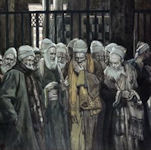
Of the 13 epistles that claim to be written by Paul, scholars are virtually in complete agreement that he wrote Romans, 1 Corinthians, 2 Corinthians, Galatians, Philippians, Philemon, and 1 Thessalonians. For the Deutero Pauline epistles I would accept 2 Thessalonians as being written by Paul. Colossians could go either way but I would not claim that it was written by Paul because of the writers change in when we have a “glorified existence.” Ephesians I will simply say, “Ephesians is the greatest book that Paul didn’t write.” I would also go with the scholarly consensus about the pastoral epistles that these were probably written after Paul’s life.
How do we reconcile this then? That is simple. We need to get over the idea that the bible is perfect from cover to cover. The bible is very ambiguous and is open to many interpretations. That is why we l have a different church on every street corner in America and every one in those churches calling themselves “Christians.”
The people who pulled together all the manuscripts that make up the bible as we know it today (which took hundreds of years) said that for a manuscript to be considered authoritative for the biblical canon, it must be:
When the powers that be pulled the manuscripts together to create the biblical canon, they didn’t have the ability or resources to analyze them the way we do now. Many times oral tradition was accepted as fact which allowed pseudonymous writings to be included in the biblical canon. Hebrews was originally believed to be written by Paul but scholars have since determined that Paul didn’t write it at all. This isn’t a faith ending thing, if anything it should be a faith building thing. One thing I am absolutely positive about is that the Holy Spirit saw to it that the truths of God stayed the truths of God. These truths were not changed over thousands of years and thousands of copies and translations! Our unfortunate side is that most of us have to rely on translations, be it King James, New International Version, etc. and we simply accept that what we are told is true. Every translation or sermon is someone’s or some group’s interpretation with a bias slant (right or wrong).
The pastoral epistles contain some fantastic teachings whether they were written by Paul or not. I use quotes from these epistles all the time; note that the header at the top of every page in Biblical Forensics is from one of the pastoral epistles. There must be a reason that the writer of
2 Tim 2:15
2 Tim 2:15Be diligent to present yourself approved to God, a worker who does not need to be ashamed, rightly dividing the word of truth. (NKJV)
says we must “rightly [divide] the word of truth.” The process of “rightly dividing” means we need to:
It is absolutely critical that we know the truth so we won’t be deceived (this is an abridged list;
Matt 24:24
Matt 24:24For false christs and false prophets will rise and show great signs and wonders to deceive, if possible, even the elect. (NKJV)
,
Luke 21:8
Luke 21:8And He said: “Take heed that you not be deceived. For many will come in My name, saying, ‘I am He,’ and, ‘The time has drawn near.’ Therefore do not go after them. (NKJV)
,
Eph 5:6
Eph 5:6Let no one deceive you with empty words, for because of these things the wrath of God comes upon the sons of disobedience. (NKJV)
,
Col 2:4
Col 2:4Now this I say lest anyone should deceive you with persuasive words. (NKJV)
)!
| NOTE: | In Greek the word for “deceive” is “planaō” (πλανάω) and is used 39 times in the New Testament. The word “deceive” can be used in many ways but most of the 39 occurrences are a warning to those who seek or already possess the truth, so I would take these warnings seriously. |
There is one all important subject, salvation, which is accepting Yeshua as Lord and savior of our lives, everything else is “fluff!” The “fluff” determines whether you are a miserable, defeated Christian or a strong, victorious Christian, or somewhere in between. I am already picturing ribbing people in eternal life something like “see, I told you…” to which they will reply “yeah, but I told you about…” and it will all be good because we made it in spite of ourselves. There will be stuff I was right about and stuff I was wrong about, none of us are all knowing!
 - Paul
- Paul